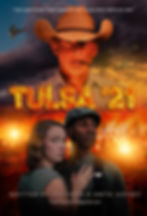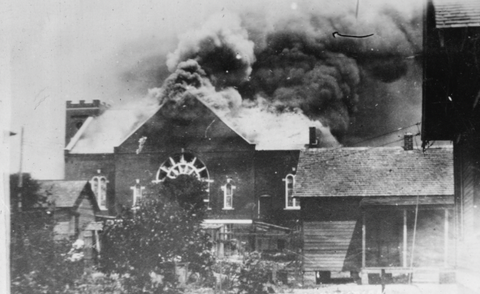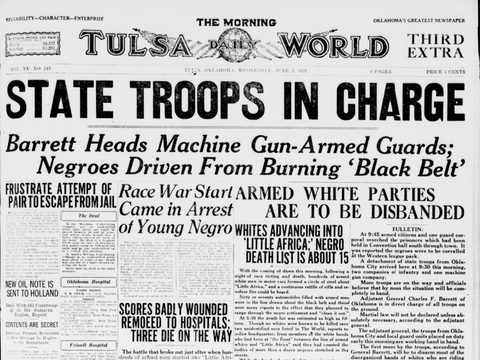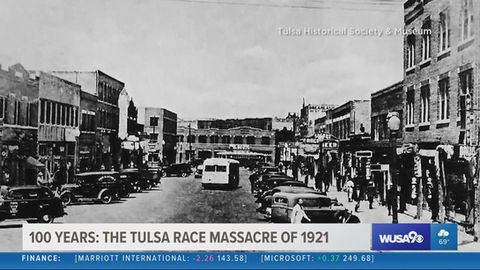Testimonials
"This production is very moving. It speaks to our heart. We hope that the script is moving forward. We need more movie productions like this."
Staged Reading Audience Member
"The Script shows the resiliency of the African American people during a time when Jim Crow was at its highest and just a few years before a group of people who were disenfranchised pulled together and built their own America.”
- Staged Reading Audience Member
"I’m from Oklahoma and I didn’t know this story. It was erased from our history books.”
- Laura Galt
“The Truth Will Out. Every time this story is heard more people learn about it and every time it is told people know that there were successful blacks, that there was a Black Wall Street in Oklahoma in the 1920’s, and that there were horrid treatments against them. There have been many attempts to bury these facts and every time this story is told, the truth will out.”
– Daniel Norton, cast as “Sheriff McCullough
“[This script is a matter of history, pushing it forward, teaching it, and then people doing with it what they will because if you don’t know your history, you’re bound to repeat it.”
Shay Washington, cast as “Dorothy Henderson
“About 6-7 years ago, I was a speaker at an actors seminar and Anita was there and she told me about Tulsa ’21 and I thought it was a fabulous, fabulous idea. Then, at the Lake Travis Film Festival, she submitted her script and she knocked our socks off! And so here is the next step in the path that this saga is taking, and I promise you, with her tenacity, you’re going to see it on the big screen soon!”
- Mike Gassaway, cast as “McNally”
“In 2014, Anita started telling two of us black people the story of Tulsa ’21. Then she called me and asked me to read for Mr. Rowland in the staged reading and I said “heck yeah”. This script is important because of the history and because of the place we are now when history is being erased in front of our eyes.”
- Christopher Winbush, cast as “Mr. Rowland”
“This production is very moving. It speaks to our heart. We hope that the script is moving forward. We need more movie productions like this."
- Staged Reading Audience Member
“The Young Dick Rowland and Charles and Frank playing the high school kids were great! So funny!”
- Staged Reading Audience Member
“I’m in an interracial relationship with my husband and I try to get as much knowledge as I can so I can teach my children about their history and heritage.”
- Staged Reading Audience Member
Recent Recognition
Tulsa '21 has received multiple honors:
-
Best Screenplay, Black Screenplays Matter
-
Finalist, Tulsa American Film Festival
-
Finalist, Lake Travis Film Festival
-
2nd Rounder, Austin Film Festival
-
Best Pitch, South Texas International Film Festival


.webp)
.webp)

The script was recently presented as a staged reading at the Price Center in San Marcos, Texas, to a sold-out audience, funded by the San Marcos Arts Commission.
Video of staged reading available upon request

Why Tulsa '21 Matters
Tulsa '21 is more than a historical drama—it’s a story of forbidden love, resilience, and the pursuit of justice. By focusing on the human stories behind the Tulsa Race Massacre, the script invites audiences to reflect on the past and the ongoing fight for equality.
Meet the Writers

Anita Azenet
A U.S. Navy veteran and award-winning screenwriter, Anita is deeply engaged in the arts and historical communities. She holds a degree in Cinema and Television from California State University and has produced and directed a staged reading of Tulsa '21.

Joe Fikes
A graduate of the U.S. Naval Academy and UCLA’s Screenwriting Program, Joe’s passion for historical storytelling and commitment to accuracy bring depth and authenticity to Tulsa '21.

Tulsa '21
Tulsa '21 is a gripping drama feature script inspired by the true events of the 1921 Tulsa Race Massacre. Written by Joe Fikes and Anita Azenet, the story centers on Dick Rowland and Sarah Page—two teenagers whose secret interracial romance unfolds against the backdrop of a city on edge. On prom night at Tulsa’s all-Black high school, a chance elevator accident involving Dick and Sarah sparks a wave of rumors and racial tension. As Dick is falsely accused and a white mob gathers, the couple’s devotion is put to the ultimate test. Caught in the chaos as violence, pillaging, and air bombings tear apart the prosperous Black community of Greenwood, Dick and Sarah must risk everything to escape the city that has turned against them. Their love becomes the catalyst—and the human heart—of one of the most devastating chapters in American history
Our Mission
Our mission is to raise awareness of our historical drama script and seek financial, business, and creative investors to bring this impactful story to life on the screen or stage.
About the Story
It’s prom night at Booker T. Washington High School in Tulsa’s prosperous “Little Africa.” Dick Rowland, a Black senior, and Sarah Page, a white elevator operator, dream of escaping north together where their love can thrive. But when an elevator accident throws Dick onto Sarah, a rumor quickly spreads, leading to Dick’s arrest and a white mob’s call for lynching. As Black residents rally to protect Dick, violence erupts, and the city descends into chaos. Amid the devastation, Dick and Sarah’s love story is revealed as they attempt to flee the city they once called home.

Historical Context
The Tulsa Race Massacre began on May 31, 1921, after the incident between Dick Rowland and Sarah Page. Fueled by racial tensions and false accusations, white mobs attacked the Greenwood District—known as “Black Wall Street”—destroying homes, businesses, and lives. Over 1,200 homes were burned, and hundreds were killed or injured, marking one of the most tragic events in U.S. history.





































